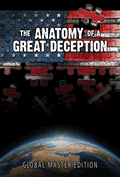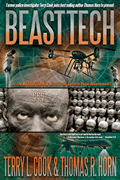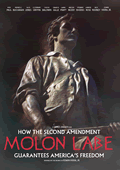Other
Emord
Articles:
Mandatory Vaccination is an
Assault on Individual Liberty
By Attorney Jonathan
Emord
Author of "The Rise of Tyranny" and
"Global Censorship of Health Information" and
"Restore The Republic"
April 13, 2015
NewsWithViews.com
Many peculiar facts surround the assassination of President Lincoln, but one of the more obscure and odd set of events involves Boston Corbett, the little known man who shot the President’s assassin, John Wilkes Booth. In his The American Scholar article, “The Man Who Shot the Man Who Shot Lincoln,” former Baltimore Sun correspondent Ernest B. Furgurson succinctly resurrects the bizarre life history of one Thomas Corbett, who renamed himself Boston upon undergoing a born again experience at the hands of a Boston, Massachusetts’ Salvation Army evangelist following Corbett’s alcoholism. Shiftless, Corbett caught the war bug in 1861 and enlisted to fight for the Union as a private in the 12th New York Volunteers. After suffering capture and near death in the infamous Confederate Andersonville prison, Corbett recovered and then happened to make his way serendipitously into the history books.
Furguson recounts how on April 26, 1865 John Wilkes Booth remained holed up on the Garrett farm in Port Royal, Virginia. There, in the tobacco barn, he and his co-conspirator David Herold hoped to avoid discovery when Union soldiers under the command of Lieutenant Edward Doherty and detectives descended on the barn, discovering it after threatening Henry Garrett with hanging if he would not tell. After demanding Booth and Herold’s surrender, Herold gave himself up but Booth resolved to die in defiance, inviting the soldiers to “make quick work of it; shoot me through the heart.” The soldiers set the barn ablaze, hoping to smoke Booth out. A strange private known for his unwelcome evangelism to his superiors and fellow soldiers, Corbett spied Booth through a large crack in the barn and without authorization fired upon him. His bullet struck Booth in the neck, breaking through his vertebrae and severing his spine, rendering Booth paralyzed and in mortal peril. Union soldiers pulled Booth from the barn and placed him on the porch of Richard Henry Garrett’s farm house, where he bled to death over the next three hours.
Controversy surrounded Corbett’s shooting. On the one hand, citizens grateful for the elimination of the man who killed the president, viewed him as a hero. On the other, Secretary of War Edwin M. Stanton and several Lincoln administration officials were livid, they having lost the one man who could testify whether Confederate States of America President Jefferson Davis was behind the assassination.
For his part, the enthusiastic evangelist Corbett recited that “Providence directed my hand,” claiming that God had caused the bullet to hit Booth in the same place where Booth “had shot the President.” Corbett said Booth took aim with his carbine from within the barn “at whom I could not say,” which “impressed” upon Corbett that he ought to end the stand-off without awaiting orders from Lieutenant Doherty, whereupon he shot Booth “through a large crack in the barn.” Corbett had a long history of explaining that he did not take orders from mere mortals, because he took them instead from God.
Were that the only remarkable element in Corbett’s past, we might think him worthy of an important footnote, but the oddities and quirkiness of the man are many and warrant more remark. As Ferguson explains, Corbett was a drifter who could never keep a job for long. He had an overwhelming need to proselytize via loud rantings and ravings and to condemn vociferously all manner of things he deemed immoral, which alienated him from others.
Once converted to Christianity in Boston, Corbett began preaching to folks in the Salvation Army with such zeal that he alienated them. He then became a street preacher in Boston, shouting down passers-by. During one such occasion he happened to encountered two harlots who taunted him. He said that he was tempted by them and, embarrassed, he returned to his hotel room and castrated himself with a pair of scissors. Furguson records this event and then informs us that Corbett immediately thereafter “attended a prayer meeting, had dinner, and took a walk before seeking emergency aid at Massachusetts General Hospital.” Corbett had become, as he said, a eunuch “for the kingdom of heaven’s sake,” depending on an interpretation of Matthew 19:12 as his foundation for self-mutilation.
Thereafter, Corbett continued to move about the country preaching in his oddly cantankerous way. Aside from an obvious need for attention, Corbett’s work as a hat finisher replete with inhalation of mercury vapor from the mercury nitrate used in the process may help account for why he was “mad as a hatter.” Unable to keep a job for long, he became a doorkeeper in the Kansas House of Representatives in Topeka on one occasion. After a few months there, however, his evangelism got the best of him. He could not help but notice that the whole lot of politicians, attendants, and reporters were sinners. Ever unable to suppress his zeal for passing judgment on the wayward, he finally let them have it on February 15, 1887, pulling out a pistol after the prayer opening the legislative session and waving it about the floor of the House and at the Speaker of the House. The legislature wisely adjourned and Corbett, who shot no one, was finally subdued by police. Needless to say, his misplaced religious zeal added to his resume in the most unwelcome ways.
At last Corbett was institutionalized. Remaining in an insane asylum for a year, but managing to escape by stealing a pony. He thereafter remained impecunious and kept popping up in different locations, with news reports in different newspapers claiming he was there. Some claimed he died but no one knew for sure just when or where.
|
|
You may learn more about the odd life of Corbett in Ernest B. Furgurson’s excellent American Scholar article. His few decades on the planet are among the weirdest, particularly because his serendipitous arrival at different critical junctures in the history of the time (Andersonville prison, the shooting of Booth, and suspension of the Kansas legislature, among others), make him a sort of “Where’s Waldo” figure. If you find evidence that Corbett was there, you are likely to find unique insights into the history and social life of America in the second half of the 19th Century.
Click here to visit NewsWithViews.com home page.
© 2015 Jonathan W. Emord - All Rights Reserved
Jonathan W. Emord is an attorney who practices constitutional and administrative law before the federal courts and agencies. Ron Paul calls Jonathan “a hero of the health freedom revolution” and says “all freedom-loving Americans are in [his] debt . . . for his courtroom [victories] on behalf of health freedom.” He has defeated the FDA in federal court a remarkable eight times, seven on First Amendment grounds, and is the author of the Amazon bestsellers The Rise of Tyranny, Global Censorship of Health Information, and Restore the Republic. He is the American Justice columnist for U.S.A. Today Magazine and joins Robert Scott Bell weekly for “Jonathan Emord’s Sacred Fire of Liberty,” an hour long radio program on government threats to individual liberty. For more info visit Emord.com, join the Emord FDA/FTC Law Group on Linkedin, and follow Jonathan on twitter (@jonathanwemord).
Website: Emord.com
E-Mail: jemord@emord.com
Many
peculiar facts surround the assassination of President Lincoln, but
one of the more obscure and odd set events involves Boston Corbett,
the little known man who shot the President’s assassin, John Wilkes
Booth.















 Share This Article
Share This Article







